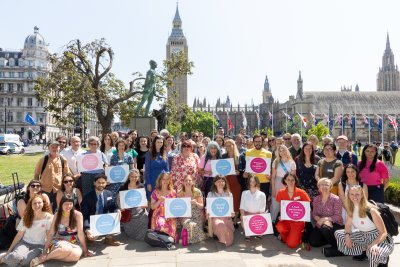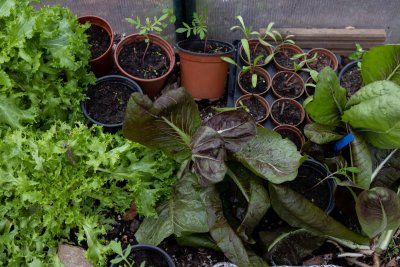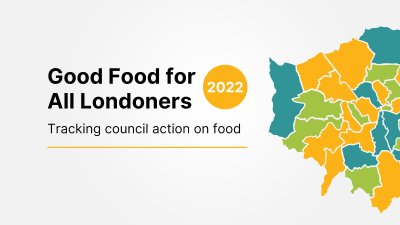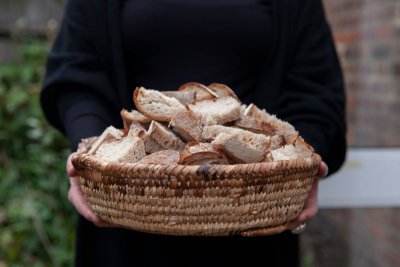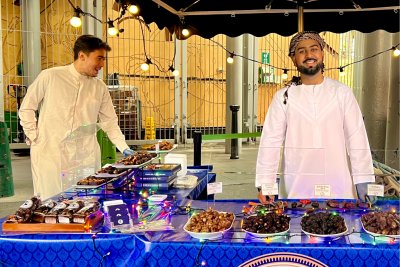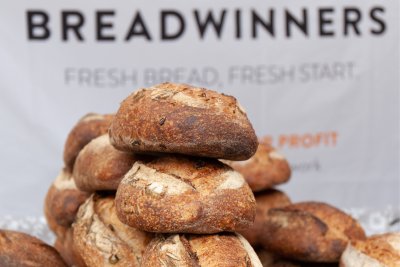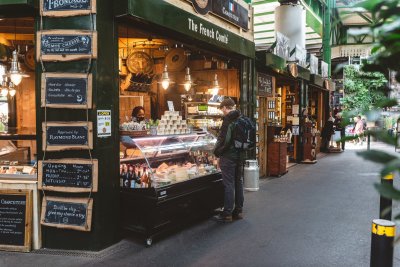There are huge opportunities to grow more food in our cities, a new report by Sustain[1] shows. Edible Cities,[2] looks at examples of urban agriculture projects in cities including New York, Milwaukee and Chicago and identifies a series of opportunities that other cities could be adopting.
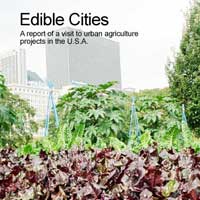 Ben Reynolds, one of the authors of the report explains: “We are all familiar with allotments, and the odd community garden as features of the city landscape, but more often than not a lot of space is wasted, where with a little support we could see projects like this in the UK, where salad crops, vegetables and even fish are produced commercially within the city.”
Ben Reynolds, one of the authors of the report explains: “We are all familiar with allotments, and the odd community garden as features of the city landscape, but more often than not a lot of space is wasted, where with a little support we could see projects like this in the UK, where salad crops, vegetables and even fish are produced commercially within the city.”
One project in Milwaukee, Growing Power,[3] has set up a fish farm as part of a river ecosystem where they are able to harvest watercress and fish to sell to local restaurants. This holistic system goes one step further, by feeding some of the fish on worms that are produced as part of a large scale composting enterprise on site.
The report is the result of a visit by a group of London officials, supported by the US Embassy. Amongst the visitors[4] was Colin Buttery, Deputy Chief Executive of the Royal Parks. Colin commented: “We saw some really inspiring initiative in the States. In Chicago, they were growing food amongst the ornamentals flower beds in the central park. There were no fences, and yet there was no vandalism, with the harvested produce sold at a nearby market .[5] It would be great to see some of these ideas adopted in London and cities across the UK.”
The report draws many parallels with the situation in London, where food growing, despite being a genuinely successful way of bringing the capital’s diverse communities together, is often forced to the extremities of neighbourhoods rather than celebrated and built into the heart of an area.
Many of the opportunities[6] identified by this report are going to be explored at the Growing Food for London conference in City Hall on the 30th June,[7] where it is hoped the city’s planners, architects, growers and policy makers will buy into an edible vision for the Capital’s future. Watch this (green) space…
ENDS
Press contact: Ben Reynolds, London Food Link project officer, tel (work): 0203 5596 777; (mobile): 07939 202711. Ben@sustainweb.org
Notes
For copies of the report or photos please contact Ben Reynolds.
1) Sustain: The alliance for better food and farming represents around 100 national public-interest organisations, Sustain (a not-for-profit organisation) advocates food and agriculture policies and practices that enhance the health and welfare of people and animals, improve the working and living environment, promote equity and enrich society and culture. www.sustainweb.org
2) Edible Cities: A report of a visit to urban agriculture projects in the U.S.A is launched on April 29th 2008. It is available at www.sustainweb.org/publications (for press copies please contact Ben Reynolds above).
3) For more information on the Growing Power centre in Milwaukee visit www.growingpower.org/
4) The four visitors included; Colin Buttery, Royal Parks, www.royalparks.org.uk/; Tony Leach, London Parks and Green Spaces Forum www.lpgsf.org.uk/; Catherine Miller, Federation of City Farms and Community Gardens (London officer), www.farmgarden.org.uk/london-pages.html; Ben Reynolds, London Food Link, part of Sustain, www.londonfoodlink.org.
5) The organisation Growing Power, established the potager kitchen garden in Grant Park, downtown Chicago in 2005. The food growing plots replaced a formal annual bedding area, so that park users do not realise at first sight that planting is entirely made up of over 150 varieties of heirloom vegetables, herbs and edible flowers. For more information see www.growingpower.org
6) The main opportunities the report identifies for growing more food in London can be summarised as follows:
- Planting more fruit and nut trees in parks and along routeways
- Planting beds of edibles instead of traditional ornamental plants in bedding in parks
- Grow more food in under-utilised spaces, setting up community gardens in parks, derelict council facilities, social housing land and unused private gardens.
- Alternative food production such as mushroom growing, bee-keeping and planting edibles on roves and window boxes.
- Re-establish food growing as a major land-use on the green belt/urban fringe.
7) The Growing Food for London conference is an all day event held at City Hall, on Monday 30th June. Booking is necessary. Speakers include Tim Lang (City University), Joe Nasr (author of Urban Agriculture: Food, Jobs and Sustainable Cities), Fritz Haeg, (author of Edible Estates: Attack on the Front Lawn) and Ian Collingwood (Middlesborough Council regeneration, and lead on the Middlesborough Urban Farming project). The event, which is jointly organised with the London Parks and Green Spaces Forum, is part of the London Festival Architecture
London Food Link: London Food Link brings together community food enterprises and projects that are working to make good food accessible to everyone in London to help create a healthy, sustainable and ethical food system for all.

